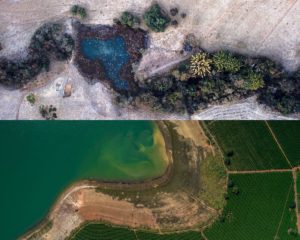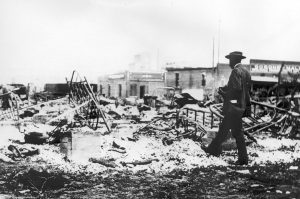Afghanistan – Women’s Rights: Past And Present
Overview
Afghanistan has had a tumultuous recent past. In the last three decades, the country has been occupied by Soviet troops and US-led international forces, and in the years in between has been ruled by militant groups, including the infamously oppressive Taliban.
Throughout the changing political landscape of Afghanistan in the last fifty years, women have been campaigning for their rights and made some gains but the issue has also been exploited by different groups for political gain, sometimes being improved but often being abused.
‘Afghan women were the ones who lost most from the war and militarisation.’ – Horia Mosadiq
In this article, we will highlight the historical background of women’s rights in Afghanistan, the current situation, as well as the current work by Amnesty International UK on this issue, including our calls for the UK government to act to protect the rights of women and girls.
A Brief History of Women’s Rights In Afghanistan
Think of women in Afghanistan now, and you’ll probably recall pictures in the media of women being forced to wear full-body burqas, perhaps the famousNational Geographic photograph of ‘the Afghan girl’, or prominent figures murdered for visibly defending women’s rights. But it hasn’t always been this way.
‘As a girl, I remember my mother wearing miniskirts and taking us to the cinema. My aunt went to university in Kabul.’ Horia Mosadiq
Taliban’s Impact On Women’s Rights
Who Are The Taliban?
The Taliban is a group that emerged in 1994 after years of conflict. Many of their members were former Mujahedeen fighters who had been trained in Pakistan during Afghanistan’s civil war in the ’80s and ’90s. They came together with the aim of making Afghanistan an Islamic state and ruled in Afghanistan from 1996 until 2001. Since then, the group has become notorious for their human rights abuses, especially towards women and girls.
Denying Women Human Rights
Under the Taliban, women and girls were discriminated against in many ways just for being women and girls. The Taliban enforced their version of Islamic Sharia law. Women and girls were banned from:
- going to school, studying;
- working;
- leaving the house without a male chaperone;
- showing their skin in public;
- accessing healthcare delivered by men (with women forbidden from working, healthcare was virtually inaccessible);
- being involved in politics or speaking publicly.
There were many other ways their rights were denied to them. Women were essentially invisible in public life, imprisoned in their homes. In Kabul, residents were ordered to cover their ground and first-floor windows so women inside could not be seen from the street. If a woman left the house, it was in a full body veil (burqa), accompanied by a male relative: she had no independence.
Men could commit domestic violence, injure and even kill their female family members with impunity. Instead, women who suffered rape and other forms of violence could end up being accused of ‘moral crimes’ and adultery and risk being stoned to death as punishment.
Afghan women were brutalised in the law and in nearly every aspect of their daily life. A woman in Kabul had the end of her thumb cut off for wearing nail varnish, for example, in 1996. Men defending women’s rights and contravening the rules were also at risk.
‘They shot my father right in front of me. It was nine o’clock at night. They came to our house and told him they had orders to kill him because he allowed me to go to school. The Mujahideen had already stopped me from going to school, but that was not enough. I cannot describe what they did to me after killing my father…’
A Fifteen Year-old Girl in Kabul, 1995
International Intervention In 2001
The US led an international military campaign intervening in Afghanistan immediately following the attacks on September 11 2001.
The need to improve the situation for Afghan women was used as a justification by world leaders leading the military intervention. This perpetuated a racist narrative that Afghan women are victims who need to be saved by Western powers. There was no recognition of how a military intervention would affect women on the ground.
The Taliban were ousted from power by the end of 2001.
In the years following international intervention, many schools opened their doors to girls and women went back to work. There was progress towards equality: women’s rights were enshrined in the new constitution in 2003, and in 2009, Afghanistan adopted the Elimination of Violence Against Women (EVAW) law.
Despite progress discrimination against women continued to be rife in society. In 2011 Afghanistan was named ‘the most dangerous country’ to be a woman.
Taliban Retake Power in 2021
The Taliban returned to power in Afghanistan in August 2021, and violence and discrimination against women and girls deteriorated across the country.
“Before [the Taliban takeover] I was considering that we had achieved a lot, but to be honest after the collapse of the government, I was rethinking. What happened? What did we achieve In the first few days, everyone was in shock.”
Shukria Barakzai, Former Member of Parliament & Former Afghan Ambassador to Norway
Despite the Taliban’s claim to have become less strict, once again women and girls are being erased from public and social life. Immediately after the Taliban took over in August 2021, women and girls immediately took the streets to protest and were met with violence, arbitrary detention and even killed, like former MP, Mursal Nabizada.
Since the Taliban have been back in power, women and girls have been banned from attending secondary school, working, appearing on TV, or even just going to a park.
Hard-fought gains in equality and human rights for Afghan women in the last twenty years are being steadily dismantled by the Taliban now. Women in Afghanistan at the forefront of fighting for their future told us:
“Many of the criminals that we had prosecuted were now in charge of the system. We did not know what the future would be for me and my family.”
– Fawzia Amini, Senior Judge, Supreme Court of Afghanistan“Soon after the Taliban returned, support to the health sector diminished and I saw everything falling apart. Although there are thousands of doctors working and trying to provide health care, without the right equipment and tools, it is not possible.”
– Dr. Masouda Faizi – Medical Doctor and Gynaecologist“Since the Taliban took power, I was hiding, and I could not do what I was doing before. There is no future for me and millions of other women and girls.”
– Shamail Zarei, Civil Society Activist
Meanwhile, Afghans who feared Taliban persecution and chose to seek refugee in other countries are also facing concering circumstances. Our collected testimonies from Afghans refugees in Pakistan show that they have faced arrests, detentions, and deportation threats, while most only have expired visas due to delays in the registration process for identity documents. Afghan refugees struggle to access healthcare, education and legal protections in policy custody, while the situation is particularly difficult for women and girls who face gender discrimination when trying to enrol in schools in Pakistan.
What Is Happening Now?
Amnesty International continues to investigate and monitor the situation on the ground.
Our latest report has found that human rights violations against women and girls have reached the levels of gender persecution, a crime against humanity.
We continue to urge world leaders to put pressure on the Taliban by using forms of leverage such as travel bans and sanctions imposed through the UN Security Council.
In the UK, the government’s response to Afghan refugees fleeing persecutionhas been “grossly flawed and utterly inadequate”. Although the UK announced a resettlement scheme for Afghans at high risk of persecution – such as women human rights defenders – the scheme has not become operational in any significant way. In fact, now UK ministers are seeking to introduce draconian immigration measures that will come close to shutting down the UK’s entire asylum system.
Recently, over 32,000 supporters joined us in demanding that the UK government takes action to safeguard the rights of women in Afghanistan. This included urging them to consult and listen to women-led organisations in Afghanistan and support human rights defenders. We are also asking that women and girls and their dependants are provided with safe routes to be able to seek asylum in the UK. Thanks to everyone who supported our campaign.
Recent In-Depth Reports
2023: Crime Against Humanity Of Gender Persecution
2022: DEATH IN SLOW MO – WOMEN & GIRLS UNDER TALIBAN
Source: https://www.amnesty.org.uk/womens-rights-afghanistan-history




